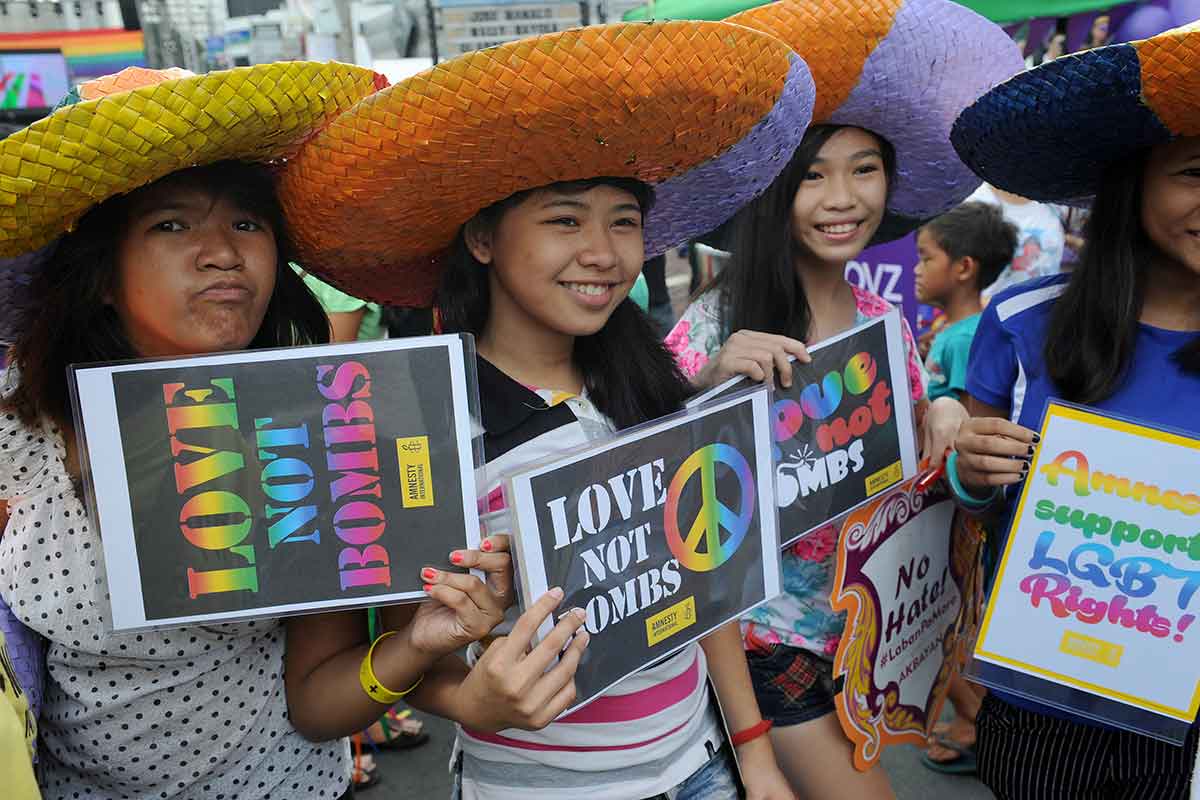Last year, Taiwan’s apex court ruled that the definition of marriage as a union between a man and a woman under Taiwan’s civil law is against their constitution, which effectively means that Taiwan is the first country in Asia to legalise gay marriage. This year, India’s courts overturned a colonial-era law which criminalises consensual gay sex. With such victories for the lesbian, gay, bisexual and transgender (LGBT) community, many are hoping that this ruling would have a domino effect on the region.
In recent years – while being far from perfect – there have been significant shifts in attitude towards the LGBT community in Southeast Asia.
Spearheading this change in the region is Vietnam. The nation has been hailed by the media for its progressive laws on LGBT rights. Throughout its history, there have been no laws against homosexuality or any state sanctioned persecution of same-sex activity. While Taiwan remains the first country in Asia to recognise same-sex marriage, Vietnam actually decriminalised it in 2015. Furthermore, in 2015, Vietnam passed a law enshrining rights for transgender people – allowing those who have undergone sex reassignment surgery to register under their new gender. In October last year, the government there announced that they are looking to draft a law to provide official legal status to transgender persons, which would allow them easier access to healthcare and public services.
Aside from that, the Philippines is also making progress on the LGBT front despite the strong religious fervour in the government. In a research carried out by the Pew Research Center in 2013, the Philippines was ranked as the 10th most gay-friendly country in the world. The research also showed that 73 percent of adult Filipinos agreed that society should accept homosexuality. While same-sex marriage is still illegal, there are reports that President Rodrigo Duterte has expressed support for same-sex marriage. However, the strong influence of the Catholic church could be an obstacle.
The LGBT movement seems to have made inroads in Myanmar and Cambodia. Myanmar recently hosted an LGBT festival in public for the first time with over 6,000 people attending on the first day alone. In Cambodia, annual LGBT Pride celebrations are held every year. Moreover, after Taiwan’s court ruling, more than 40 civil society groups and trade unions in Cambodia released a joint statement that called on the Cambodian government to introduce gay marriage legislation.
 Source: Various
Source: Various
Despite strides made in these countries, LGBT communities are still marginalised and face discrimination. Praisarn Likhitpreechakul of Thai LGBT rights group Sogi Foundation said that corrective rape is being widely used to “cure” lesbians of their sexual orientation. Also, the LGBT community are still largely marginalised, with many facing discrimination when looking for jobs, receiving homophobic and transphobic harassment and more.
Removing legal barriers for the community to freely express themselves is a good thing, however there are still segments of society that refuse to accept the LGBT community as equals. Therefore, legal protection from hate crimes, discrimination and others are imperative but lacking in the region. At the moment, no other country aside from Thailand has legislated anti-discrimination laws or anti-hate speech laws to protect their respective LGBT communities from discrimination.
The former British colonies of Myanmar, Singapore and Malaysia have inherited colonial laws that punish “sodomy”. LGBT activists in these countries, especially Malaysia and Singapore are having a tough time overturning these archaic laws. When pressed by the media on repealing Section 377A of the Penal Code which criminalises homosexual sexual activities, Singapore Prime Minister Lee Hsien Loong claimed that Singapore “… is a society which is not that liberal on these matters.” In Malaysia, aside from having to deal with civil courts, the LGBT community there also has to deal with moral policing from the country’s Syariah courts. Despite that, activists are working tirelessly, continually mobilising support and raising awareness on such issues.
In January, Indonesia made international headlines after police in Acheh shaved the heads of trans women and made them wear male clothing. In other parts of Indonesia, same-sex sexual activities are currently legal, however there are fears that the revised Criminal Code being drafted at the moment could change that. Human rights activists are worried that the proposed laws – which includes measures to criminalise extramarital sexual relations and co-habitation – would lead to institutionalised moral policing and a clampdown on the LGBT community. The likelihood of the Indonesian government stepping in to protect the community is unlikely, however after much pressure, Jokowi made a statement defending the rights of the LGBT community by stating “there should be no discrimination against anyone.”
The situation in Southeast Asia right now might not be perfect, but it’s clear that the LGBT community and the activists that surround them have been making an impact on the region. Long associated with backward attitudes to LGBT rights, attitudes may be shifting now. While some countries might progress at a different pace, it needs reminding that the political landscape in ASEAN is unique in each country, so the many obstacles and challenges ahead will vary.
Related articles:
